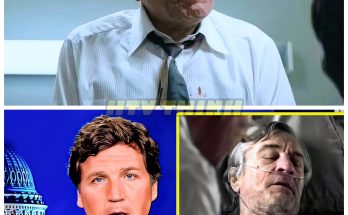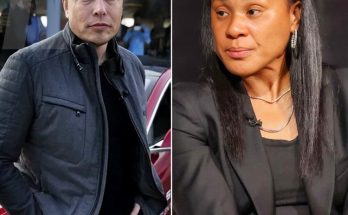
In 2025, after decades of silence, Francis Ford Coppola is finally shedding light on one of Hollywood’s greatest hidden figures—Gene Hackman. Known for his legendary role in The Godfather, Coppola now reveals how Hackman wasn’t just an actor, but a transformative force in filmmaking who rewrote the rules without ever taking a bow. This is a story of raw artistry, quiet brilliance, and a man who changed Hollywood from the shadows.
Hackman’s Role in The Conversation: A Game-Changer When Francis Ford Coppola followed up The Godfather with The Conversation, he took a massive risk. Instead of creating another loud, glitzy mafia blockbuster, he chose a low-key, cerebral thriller about a paranoid surveillance expert—played by Gene Hackman. Hackman, not yet the household name he would become, wasn’t the obvious choice for this role, but Coppola saw something raw in him that would bring Harry Caul to life in a way no other actor could.
In 2025, Coppola opened up about Hackman’s transformation into the character, recounting how the actor went so deep into his role that it became an unsettling experience for both of them. Hackman, with his quiet intensity, spent days submerged in isolation, channeling a tortured, paranoid figure that felt almost too real.
A Deep Dive into Hackman’s Method Acting Hackman’s approach to acting was nothing short of revolutionary. Coppola recalls being taken aback by how Hackman didn’t just act—he became the character. Between takes, Hackman would sit alone in silence, fully immersed in Harry Caul’s world of suspicion and guilt. Coppola, who had worked with heavyweights like Marlon Brando, had never seen an actor go so deep into a role.
One of the most chilling moments Coppola describes occurred during a pivotal scene in The Conversation. Hackman, instead of shouting or delivering the script’s dramatic lines, chose silence. His trembling hand gripping the desk and a haunted stare captured more emotion than any words could. The film’s raw emotion and realism were elevated by Hackman’s ability to show rather than tell, and Coppola admits that he learned to trust Hackman’s instincts over his own vision.
Gene Hackman: A Hollywood Rebel What made Hackman unique was not just his acting but his unwillingness to conform to Hollywood’s flashy, star-driven culture. Hackman avoided the glitzy social scene and instead focused on his craft. He’d rather read a book in his hotel room or observe the world quietly than party with the crew after a long day of filming. This introspective, reserved personality became the foundation for some of his most memorable roles.
Coppola reveals that Hackman’s quiet, humble nature extended beyond the set. Hackman’s subtlety and refusal to seek fame were what made him a true artist. He wasn’t interested in Hollywood’s superficiality. In fact, Hackman famously turned down the role of Hannibal Lecter in The Silence of the Lambs before Anthony Hopkins famously took it on, citing that it didn’t feel right. It’s this quiet rebellion that ultimately reshaped the way Hollywood approached its leading men.
The Quiet Mentor Who Shaped Hollywood Hackman’s influence reached far beyond The Conversation. Legendary actors like Al Pacino and Dustin Hoffman were inspired by Hackman’s transformative performance. Pacino, fresh off the success of The Godfather, sought out Coppola to ask about Hackman’s method, admitting that he wanted to tap into that same raw, authentic energy. Similarly, Steven Spielberg, who would go on to make iconic films like Jaws and E.T., was a frequent visitor on the set of The Conversation. He later credited Hackman with teaching him how to make characters feel human, not just larger-than-life figures.
The Legacy That Hollywood Forgot Coppola’s 2025 confessions reveal a startling truth: Hackman was a quietly revolutionary figure in Hollywood, one who rejected the limelight in favor of authenticity. His dedication to truth in his craft—whether it was through challenging scripts, changing lighting to create the right atmosphere, or rejecting the traditional norms of the industry—left a lasting impact on filmmakers and actors alike.
Despite his immense influence, Hackman never sought the fame or accolades that often accompany such contributions. His work, however, laid the foundation for the gritty, realistic portrayals that would dominate 1970s cinema and continue to influence TV and streaming today. Shows like Breaking Bad and The Bear owe a debt to Hackman’s subtle, raw style that redefined what it meant to be a leading man in Hollywood.
Conclusion: Coppola’s Emotional Tribute Why is Francis Ford Coppola finally breaking his silence in 2025? It’s not just a nostalgic look back at an iconic actor—it’s a wake-up call to the industry and the world. Hackman’s legacy, often overshadowed by louder stars, is finally being acknowledged for what it truly was: a force that changed the way movies were made. Coppola himself, choked up as he recalls Hackman’s quiet brilliance, confesses that Hackman taught him more about truth, trust, and the art of filmmaking than any award ever could.
As Coppola says, Hollywood may have forgotten Hackman, but his influence will live on forever. Next time you watch The Conversation, look past the plot and focus on Hackman’s subtle gestures, his trembling hand, his haunted stare—the silent moments that rewrote Hollywood one performance at a time. Gene Hackman, the unsung genius of Hollywood, was a quiet kingmaker who didn’t need the applause—and now, finally, the world is listening.

